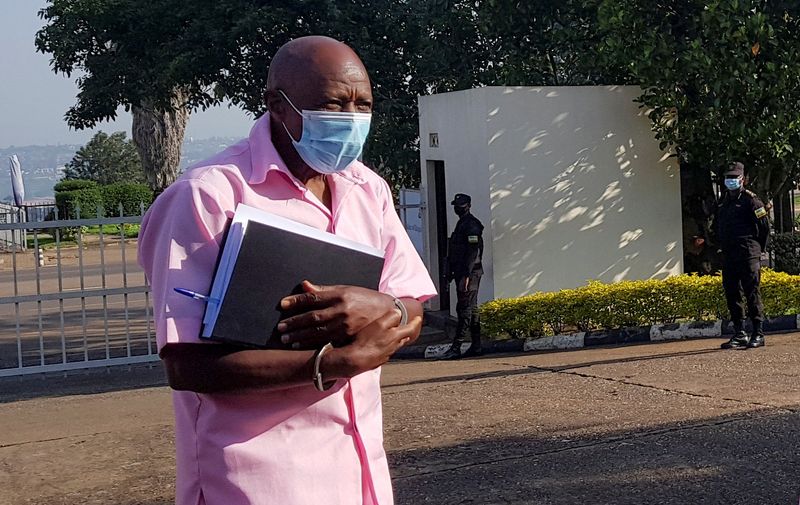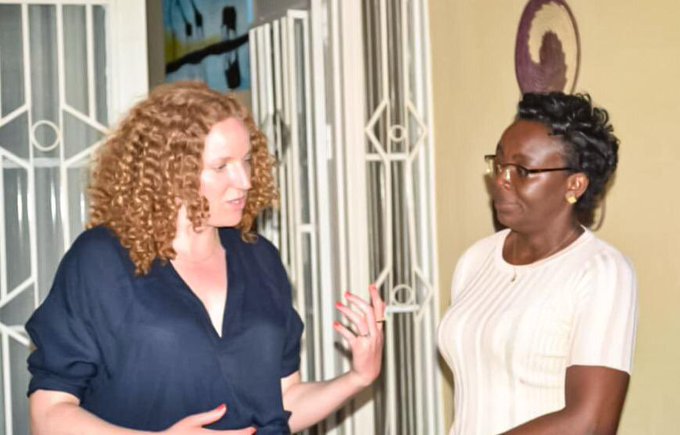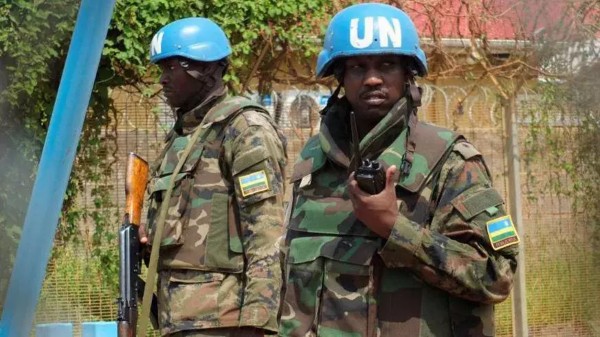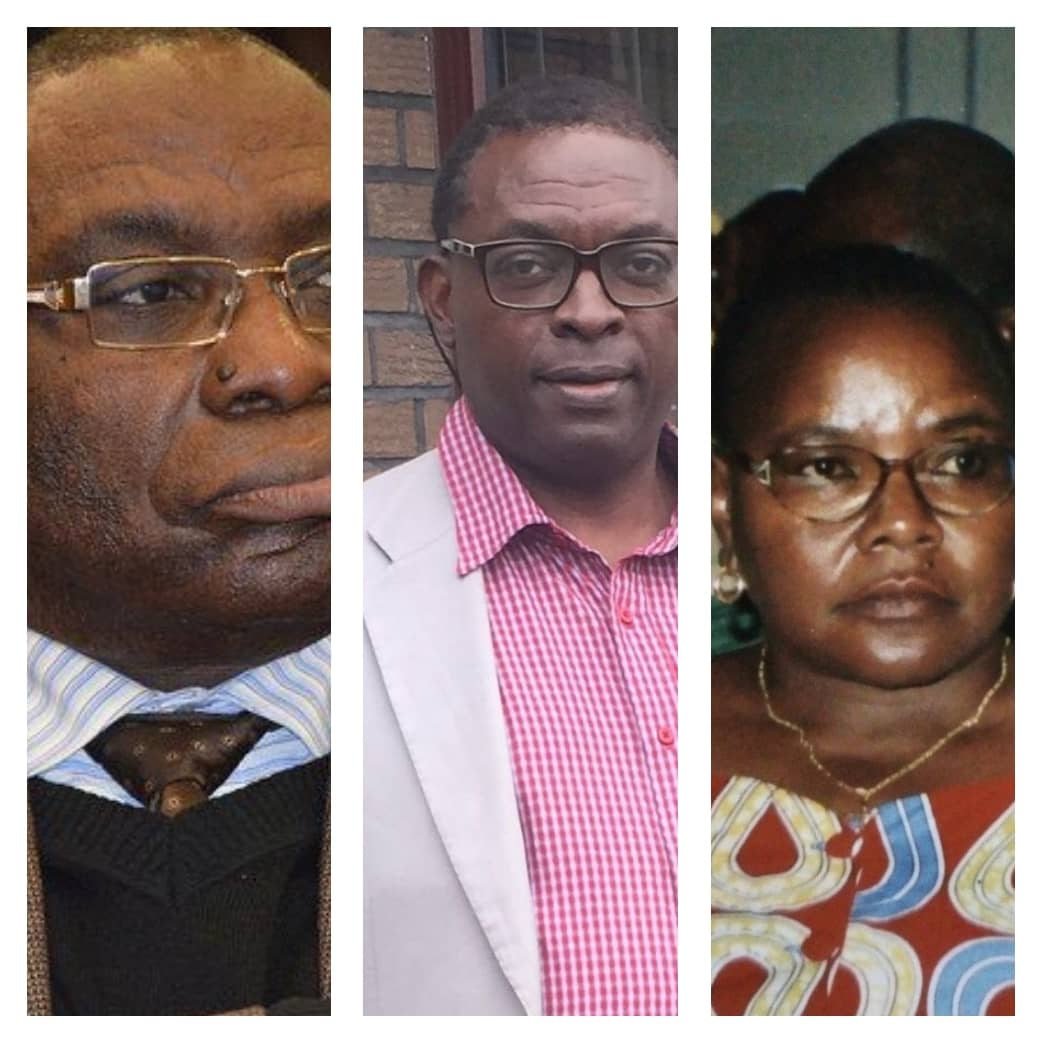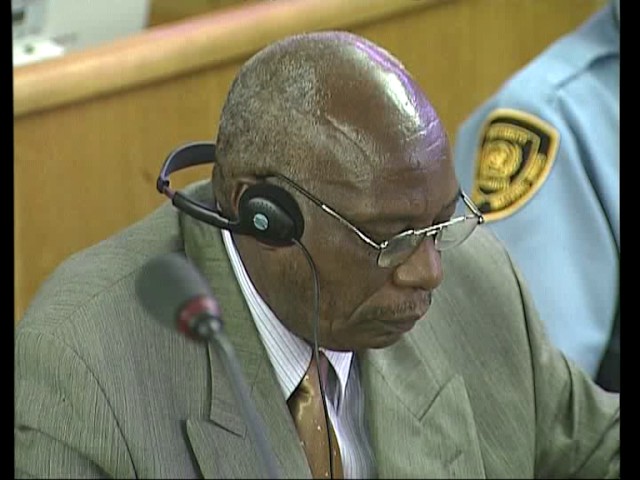International
Genocidaire who provided petrol to burn Tutsi alive has links with Victoire Ingabire
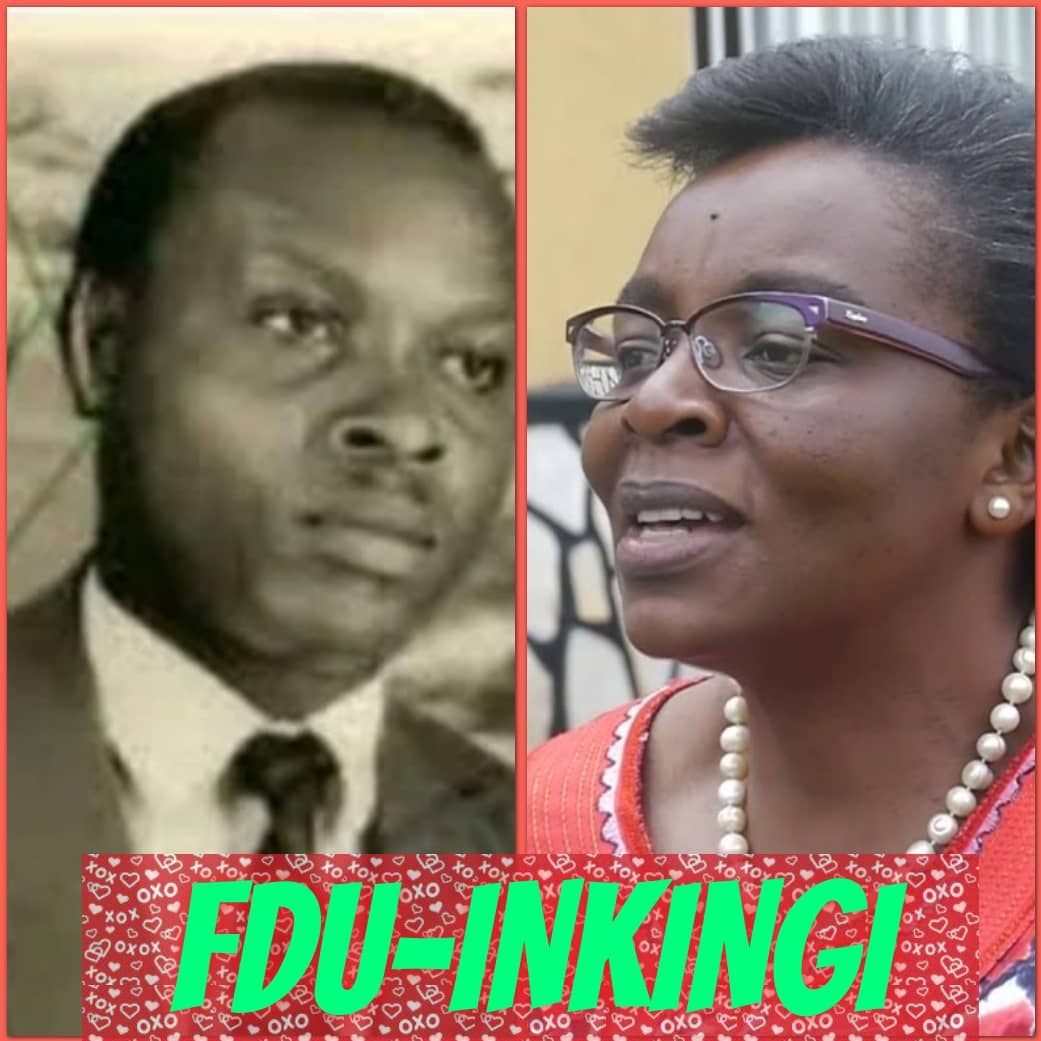
Dutch police on May 11 arrested a 65-year-old
former Rwandan army officer who was living in a town of about 30,000 people
called Ermelo, in central Netherlands.
Born in 1955 in Kiyonza, Mugina, Gitarama to
Ntawemvura and Genereuse Nyirabujogori, Maj. Pierre-Claver Karangwa, is a
wanted genocide fugitive. Mugina Parish is located in Mbati Cell, Mugina
Sector, Kamonyi District.
After the 1994 genocide against the Tutsi, he
and some others, fled to the north-western Europe country known for a flat
landscape of canals, tulip fields, windmills, cycling routes, and being a safe
haven for genocide fugitives and virulent genocide deniers including Charles
Ndereyehe Ntahontuye, the former Director General of ISAR-Rubona.
Before undertaking military studies at ESM,
in Kigali, Karangwa attended primary school located near Mugina Catholic Parish
and Secondary at Junior Seminar in Kabgayi. Later in military life, he headed
the Bureau de Gendarmerie until the end of 1993, when he became liaison officer
with the United Nations Assistance Mission for Rwanda (UNAMIR) was established
by United Nations Security Council Resolution 872 on October 5, 1993, following
the Arusha Accords signed on August 4, 1993.
In April 1994, Karangwa became a special
envoy of the chef d’etat major. He later worked as a defense investigator for
Gen. Augustin Ndindiriyimana, the Rwandan genocidal regime’s Minister of
Internal Security, who was indicted by the International Criminal Tribunal for
Rwanda (ICTR), the first international court of law established to prosecute
high-ranking individuals for massive human rights violations in Africa.
Karangwa was removed as defense investigator after discovering he was also
under investigation for involvement in the 1994 genocide against the Tutsi in
Rwanda.
Rights groups African Rights and Redress
published a dossier on Karangwa’s role in the massacres of Mugina and sent the
dossier to Dutch Authorities where he is a citizen for examining the
allegations.
For so long, however, nothing was done to
apprehend him until the tide changed recently.
In the past, Rwanda’s local Gacaca courts
sentenced him in absentia to life imprisonment sentence over the massacres of
20,000 Tutsi in Mugina parish, Southern Province, where he is also accused of
having killed a local official who was trying to foil his campaign of
exterminating the Tutsi. Karangwa, witnesses say, was also involved in the
murder of the mayor of Mugina, Callixte Ndagijimana, who was trying to protect
the Tutsi in the area.
During the 1994 Genocide against the Tutsi,
many Tutsi from Bugesera, Kigali City, Kigali Ngari, and from the communes
which surrounded Mugina Commune had taken refuge at Mugina Parish. They were so
many and hence they thought they would defend themselves when the attacks would
come. Those who had taken refuge at Mugina Parish tried to fight the attacks
with the support of Mugina Bourgmestre called Callixte Ndagijimana who did not
support the killing of Tutsi. Ndangijimana had agreed to pay selected Hutu,
Tutsi youth as well as police officers if they would continue to fight and
repel the killers’ attacks which were coming from Mbati, Mukinga, Jenda and
elsewhere.
The former area Bourgoumestre, a massmurderer
called Onesphore Ngiruwonsanga, alias Gitaro, held a meeting and ordered to cut
off all water pipes saying that they cannot kill snakes without starving them.
The kilers then sealed off all pathways using roadblocks and had many dogs
around to hunt any Tutsi who would go out of hiding looking for food. Many
Tutsi refugees starved to death.
Attacks led by Ngiruwonsanga and a
businessman called Kanyanzira were persistent.
The killers decided to kill Ndagijimana
first. He was eventually killed in Ntongwe. Afterwards, the killers called upon
the Burundian refugees who lived at Nyagahama, Kinazi to come and help them in
their killing spree. About 14 trucks full of armed soldiers, Interahamwe, as
well as attacks from Kabugondo, Ngoma, Runda and elsewhere converged at the
Parish. On April 24, 1994, there was a big massacre of the Tutsi. The Tutsi who
had taken refuge there thought they were safe in the local church but the
marauding Interahamwe militia ordered them to get out. Karangwa who was then
the head of National Gendarmery Investigation Service ordered for the Tutsi to
be killed on spot. The Interahamwe then took them into the nearby house of a
Tutsi called Moko and others were put in the toilet pit alive.
It is Karangwa who provided petrol to burn
them in the house. Those in the toiled pit were also burnt alive, on Karangwa’s
orders.
From April 25, 1994, the killing started to
intensify but they exterminated most Tutsi on April 26, 1994.
Those who had fled to the parish were killed
using guns, grenades, machetes, sharp sticks, and stones. Some of the key
perpetrators include Karangwa, Ngiruwonsanga Onesphore, Kanyanzira.
In the Netherlands, Karangwa’s wife is the
Vice President of Contact, Dialogues and actions caritatives (CODAC).
Self-styled Rwandan politician Victoire
Ingabire – a staunch denier of the 1994 genocide against the Tutsi – is a
founding member of many associations and foundations including CODAC which
purportedly seeks to give moral, legal advice and material support to 'the
survivors' of the Great Lakes region in the Netherlands or in their region.
CODAC was one of the major funders of
FDU-Inkingi, an outfit that claimed to work for the installation of rule of
law, respect of democracy and good governance, in Rwanda. FDU-Inkingi, however,
collaborated with terrorist groups such as the DRC-based FDLR that comprises
remnants of the mass murderers who carried out the 1994 Genocide against the
Tutsi in Rwanda.
Later, when Ingabire sensed that the true
colours of FDU-Inkingi were no longer secret she pretended to resign from its
leadership and created another phoney political party called Dalfa-Umurinzi.
Karangwa was in charge of security and
documentation (intelligence) in FDU-Inkingi, before the post was removed from
their organization structure.
Until his arrest, he was operating
clandestinely because he is wanted for genocide crimes.


